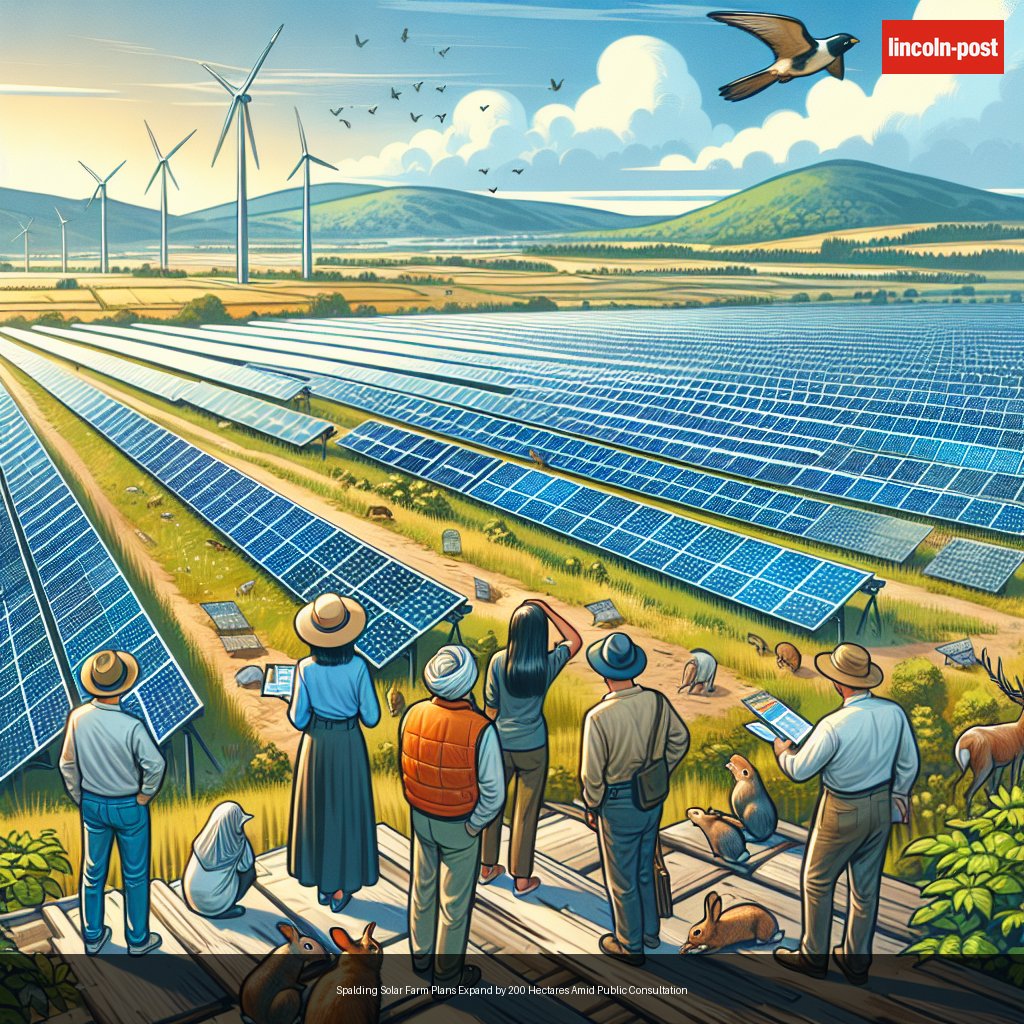The plans for the extensive Meridian Solar Farm near Spalding have increased by roughly 200 hectares since their first introduction. Initially measured at 900 hectares, the development now seeks to supply power to over 200,000 homes. The project’s orchestrator, Downing Renewable Developments (DRD), is currently refining the plans and actively inviting local residents to input before the submission of a planning application. The second stage of DRD’s public consultation commenced on 24 April and is scheduled to run until 8 June, with three events for community engagement planned.
DRD has stated that only about 600 hectares will be fitted with solar panels, with the remaining space acting as a hub for necessary infrastructure, including cables and battery storage facilities. The main focus locations are around Spalding and Crowland, with an additional spot near Sutton St Edmund. David Vernon, DRD’s head of nationally significant infrastructure projects, underlined the significance of public feedback in finalising the designs, simultaneously encouraging local involvement in the consulting process.
It’s projected by The Local Democracy Reporting Service that the project plans will be submitted later this year, with the aspiration to start operations by 2029 and supply renewable energy for up to forty years. On the other hand, the Meridian Action Group, objectors to the solar farm, are emphasising the need for the local community to have their say. They propose using brownfield sites instead of fertile farmland, voicing concerns over food security. Paul Smith, a representative for the group, urged locals to share their views, stating that without public engagement, the proposal could advance unaltered.
Public consultation meetings are planned at Sutton St Edmund Village Hall on Saturday 10 May, Crowland Snowden Pavilion on Wednesday 21 May, and Weston Village Hall on Thursday 22 May. This story’s information was adapted by The Lincoln Post from original reporting by www.bbc.com.









